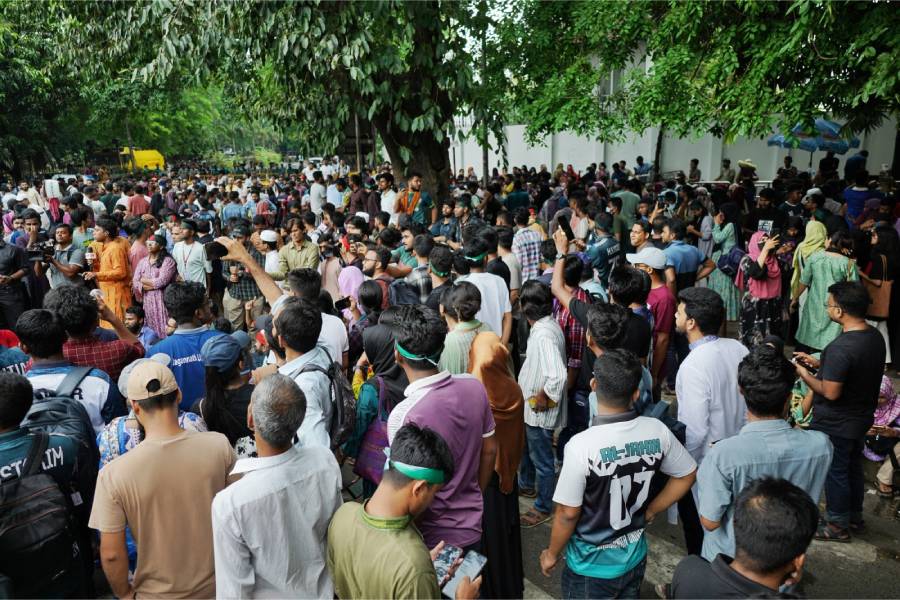

After several days of protest, Jagannath University (JnU) students called off their movement on Friday following the government's assurance to meet their demands. While this development is reassuring, the incident calls for a careful scrutiny and stocktaking by the authorities concerned to determine why a protest over legitimate demands escalated to a standoff with the government. What the students demanded was neither unique nor unreasonable for the government to address. They have long been demanding an increased budgetary allocation for the university, arranging residential facilities for students or providing them with housing allowance, and expediting the construction work of the university's new campus.
JnU is the only public university - apart from the newly established ones - without residential facilities for students. It has just one dormitory for female students, while as many as 11 dormitories of the former Jagannath College - now Jagannath University - remain occupied by locals and politically influential individuals. The university has a long history of students waging intense protests to demand residential facilities. The previous Awami League government, instead of reclaiming the occupied halls, decided to move the university to a second campus in Keraniganj from Old Dhaka's densely populated area. Students had welcomed the decision, but it has been nearly a decade since the promise was made but there has been little headway. Students, therefore, have every reason to feel disappointed and discriminated against. The question, however, is why the students' renewed movement over these legitimate demands escalated to a standoff with the government, prompting even teachers and former students to join in.
Strangely enough, while students were protesting against discrimination-in a system where some public universities have residential facilities and others do not-they faced yet another form of discrimination. Just a week earlier, when a group of protesters launched a 'march towards Jamuna, the Chief Advisor's current residence, demanding a ban on the Awami League, the law enforcers did not take stringent action for violation of the ban on holding demonstration there and yielded to their demands. In stark contrast, JnU protesters were met with baton charges, tear gas, and rubber bullets, which caused eruption of tension. The students were right to ask, why this double standard?
Even more curious is the complete absence of the Education Advisor from the scene. Several other universities, including KUET, along with other educational institutions, have plunged into a state of chaos - yet the Education Advisor has been conspicuously absent, showing little sign of taking on a crisis management role. Timely dialogue might well have dissuaded students from taking to the streets or launching a 'March towards Jamuna.' Ultimately, the government yielded to the students' demands but under circumstances that risk setting yet another troubling precedent --- organised groups can press home their demands by arranging a march towards CA's residence.
Since the interim government assumed state power, Dhaka has become a city of protests. Rarely does a day pass without groups of demonstrators taking to the streets and blocking roads. Just last week, at least four different groups were staging demonstrations and blocking roads simultaneously at various locations across the city, paralysing traffic and causing immense suffering to the commuters. It demands serious analysis. Given that most of the protests are originating from educational institutions, the government should consider forming an education reform commission to address the long-standing grievances in the sector. Ignoring grievances or resorting to violence to disperse street protests will only worsen the already fragile political situation, creating opportunities for vested quarters to fish in troubled waters.


 For all latest news, follow The Financial Express Google News channel.
For all latest news, follow The Financial Express Google News channel.